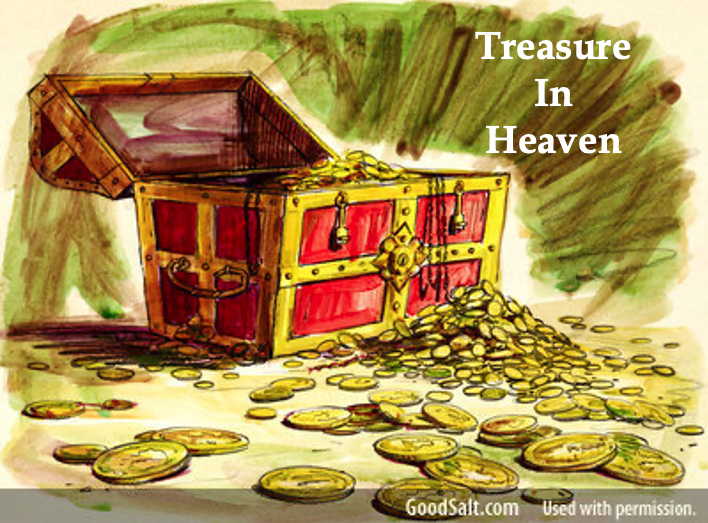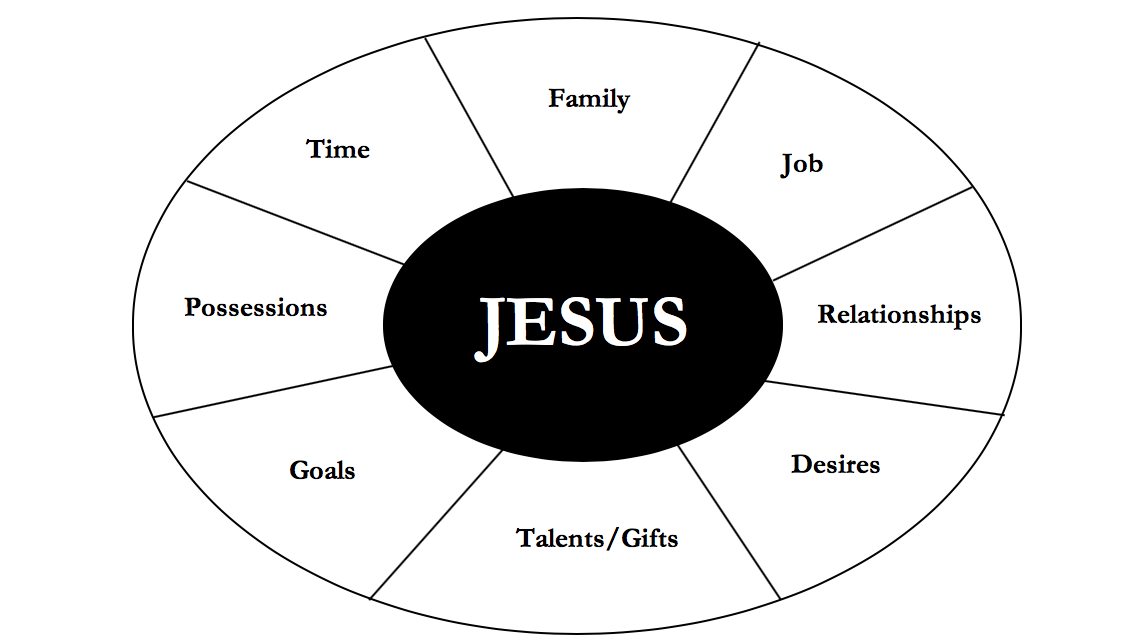“Then I heard a voice from heaven saying to me, ‘Write: Blessed are the dead who die in the Lord from now on.’ ‘Yes,’ says the Spirit, ‘that they may rest from their labors, and their works follow them.’” Revelation 14:13
In another of the apostle John’s visions on earth (Revelation 14:6-13), he hears four announcements that provide motivation to remain faithful to God and resist the beasts during the last half of the Tribulation period. We have looked at God’s angels who will make the first three announcements (14:6-12), and we are now ready for the fourth announcement (14:13).
In Revelation 14:9-11, nonbelievers who have not yet bowed to the beast nor taken his mark during the last half of the Tribulation period are warned not to do so lest they be subject to “the full strength” of God’s wrath in time and eternity. The apostle then encourages believers to persevere in their faithfulness to Christ during this extremely difficult time (14:12). In the next verse he gives them incentive for remaining faithful to God.
“Then I heard a voice from heaven saying to me, ‘Write: Blessed are the dead who die in the Lord from now on.’ ‘Yes,’ says the Spirit, ‘that they may rest from their labors, and their works follow them.’” (Revelation 14:13). This “voice from heaven” may belong to the Lamb of God, the Lord Jesus Christ (1:10-11, 19; cf. 10:4, 8; 11:12; 14:2; 18:4; 21:3). 1 His voice announces that many believers “in the Lord” who live during the last half of the Tribulation will be “blessed” to “die” as martyrs. These believers in Christ who stand firmly against the Beast and refuse to worship him or take his mark, and die as a result, will be “blessed” both now and forever. 2 The phrase “from now on” means “from this time on during the Tribulation,” specifically during the persecution of the Beast and the bowl judgments. Through their martyrdom, these believers will escape the intense judgments and sufferings of the last half of the Tribulation. 3
God the Holy “Spirit” then adds that these faithful believers will be “blessed” beyond the grave in heaven where “they may rest from their labors,” which is the opposite of what will be experienced by those who receive the mark of the beast (14:9-11). 4 Nonbelievers will receive “no rest” and “shall be tormented with fire and brimstone … forever and ever” because of their unbelief toward Christ (14:10-11). But the good “works” of these faithful believers will “follow them” into heaven where they will be rewarded forever by the Lord Jesus Christ (14:13b; cf. Matthew 10:42; Mark 9:41).
“God does not save anyone for his works, but He does reward us for our works. Our works (good or bad) are like tin cans tied to a dog’s tail; we cannot get away from them. They will follow us to the bema seat of Christ.” 5
While we cannot take our material possessions with us when we die, the Bible does teach that we can send eternal wealth ahead of us. Jesus said, “19 Do not lay up for yourselves treasures on earth, where moth and rust destroy and where thieves break in and steal; 20 but lay up for yourselves treasures in heaven, where neither moth nor rust destroys and where thieves do not break in and steal.” (Matthew 6:19-20). Christ instructs us not to lay up treasure on earth because it is temporary. Perhaps you have had a “moth” eat holes in your clothes or “rust” destroy your possessions made of metal, or “thieves” break in your house and steal your valuables. These earthly treasures are perishable.
But notice Jesus says to “lay up for yourselves treasures in heaven.” Why? Because it is permanent. In heaven, a “moth” or “rust” cannot destroy your heavenly treasure, nor can a “thief… steal” it.
We usually miss those words “for yourselves.” Jesus makes it clear that there IS a way to “take it with you.” We can send treasure ahead of us by using the time, treasure, and talent God has entrusted to us on earth as a steward for God’s kingdom and glory (cf. Matthew 25:14-30; Luke 19:11-26).
Well-meaning Christians have asked me, “Isn’t it selfish to seek eternal rewards?” My answer is, “Not according to Jesus.” Since Christ commands us to lay up for ourselves treasures in heaven, it is selfish not to obey His command to pursue eternal rewards. Plus, a believer cannot afford to be selfish in nature, for to do so would disqualify him or her for the eternal rewards he or she seeks. Pursuing eternal rewards is one of the strongest motivations for an unselfish and merciful lifestyle (cf. James 2:1-13).
When we get to heaven, the treasure we have sent ahead of us will be reserved there for us to use to bring glory to God throughout eternity. The more treasure we lay up in heaven now, the more we can use to honor Christ in His coming Kingdom.
Bob Wilkin shares some helpful insights: “While many think of this treasure as a figure of speech for some unspecified blessings, I see it as an eternal trust fund that believers will use to glorify God. The more we have stored up, the more we can give away in service to the Lord.
“What? Who would need money in the kingdom? Well, no one, if the kingdom of God were going to be some ethereal experience, consisting of floating on clouds and strumming harps. However, the description of the eternal kingdom on the new earth in Revelation 21:24 strongly suggests the existence of an economy: ‘The kings of the earth [will] bring their glory and honor into it [the New Jerusalem].” Actually, the majority of manuscripts read, ‘The kings of the earth [will] bring the glory and honor of the nations to Him.’
“In any case, the point is clear. The three wise men who brought gifts to the baby Jesus were types of rulers who, in the age to come, will forever bring gold and other treasures to the Lord Jesus.” 6
Why is it so important to focus on storing up treasures in heaven instead of treasures on earth? Jesus tells us, “For where your treasure is, there your heart will be also.” (Matthew 6:21). What we value the most is what directs our hearts. Wherever our treasure happens to be, that is where our hearts will be focused. God wants our hearts to be focused on Him and the life to come. This is why we are commanded to invest in heavenly rewards. God knows better than we do what will motivate our hearts for Him. If we set our hearts on accumulating the things of this earth, then the pursuit of earthly possessions will guide our hearts. But if we focus on the things of God and the life to come, then that is what will direct our hearts. We cannot focus on laying up treasures on earth and at the same time concentrate on laying up treasures in heaven.
Wilkins writes, “A few years ago, world-class athletes were asked the following question: ‘If you could take a drug that would cause you to win a gold medal, but it would kill you in ten years, would you take it?’ Amazingly, the majority said yes. They’d sacrifice fifty or more years of life for a gold medal.
“What would you give up to have treasure in heaven? Would you drive a lesser car than you could otherwise afford? Live in a more modest home? Have a less expensive wardrobe? Enjoy simpler or fewer vacations? Give up fifty years of life (if called upon to be a martyr, for example)? The answer you give to these questions will depend on where your heart is.” 7
Heavenly treasure is a type of reward that cannot be lost once it has been earned. So, when a believer gives a cup of cold water to one of God’s servants (Matthew 10:42) or does a charitable deed in private (Matthew 6:3-4), prays in private (Matthew 6:6), or fasts in private (Matthew 6:17-18) with the proper motive, a deposit is made into his or her eternal bank account in heaven (Matthew 6:19-21). The more deposits you make, the more heavenly treasure you will have with which to honor Jesus Christ in His coming kingdom.
A second type of reward is called a perseverance reward. Believers who remain faithful in their service to Jesus to the end of their lives will be given rewards that include wearing a special white garment (Revelation 3:4-5), ruling with Christ in His kingdom (2 Timothy 2:12; Revelation 2:25-27; 3:21), eating the fruit from the tree of life (Revelation 2:17; 22:14), eating hidden manna (Revelation 2:17), receiving a white stone engraved with your own special name that only the Lord and you will know (Revelation 2:17), and receiving a special entrance into the New Jerusalem (Revelation 22:14).
A third type of reward has to do with crowns. Believers can earn a crown of rejoicing for making disciples of Jesus (I Thessalonians 2:19), a crown of righteousness for loving the coming of the Lord Jesus (2 Timothy 4:8), a crown of life for enduring trials and temptations until death (James 1:12), a crown of glory for faithfully shepherding others as a servant leader (I Peter 5:4), and an imperishable crown for living a disciplined life (I Corinthians 9:25).
By focusing on eternal rewards, believers in Jesus will develop a greater desire to please God rather than men. Because Christ is first in the life of a disciple and could come back at any moment for His church, a disciple should seek to win as many people to Christ as possible and become more like the Judge who will evaluate his or her life at the Judgment Seat (2 Corinthians 5:9-11; I John 2:28-3:3).
Prayer: Loving heavenly Father, we thank You for Your perspective given to us in Revelation 14:13 which involves encouragement for believers in the last half of the Tribulation period who may suffer physical death for taking a stand against the Beast and refusing to take his mark. You promise them that their good works will follow them into heaven where they will receive eternal rewards from the Lord Jesus. Thank You Father for reminding us that this life is not all there is to live for. As believers in Jesus, we are commanded to lay up for ourselves treasures in heaven by living a godly life for You. Please help us to keep our focus on You and the life to come so we may have more treasure in heaven with which to honor You throughout all of eternity. In the matchless name of Jesus Christ, we pray. Amen.
ENDNOTES:
1. Tom Constable Notes on Revelation, 2017 Edition, pg. 161.
2. Bob Vacendak; Robert Wilkin; J. Bond; Gary Derickson; Brad Doskocil; Zane Hodges; Dwight Hunt; Shawn Leach, The Grace New Testament Commentary: Revised Edition (Grace Evangelical Society, Kindle Edition, 2019), pg. 1553.
3. Constable, pg. 161.
4. Tony Evans, CSB Bibles by Holman, The Tony Evans Study Commentary (B & H Publishing Group, Kindle Edition 2019), pg. 2403.
5. Constable, pg. 162 cites J. Vernon McGee, Thru the Bible with J. Vernon McGee, 5 Vols., (Pasadena, CA: Thru The Bible Radio; and Nashville: Thomas Nelson, Inc., 1983), 5:1011.
6. Robert N. Wilkin, The Road to Reward: A Biblical Theology of Eternal Rewards Second Edition (Grace Evangelical Society, 2014 Kindle Edition), pp. 39-40. 7. Ibid., pg. 40.
7. Ibid., pg. 40.



